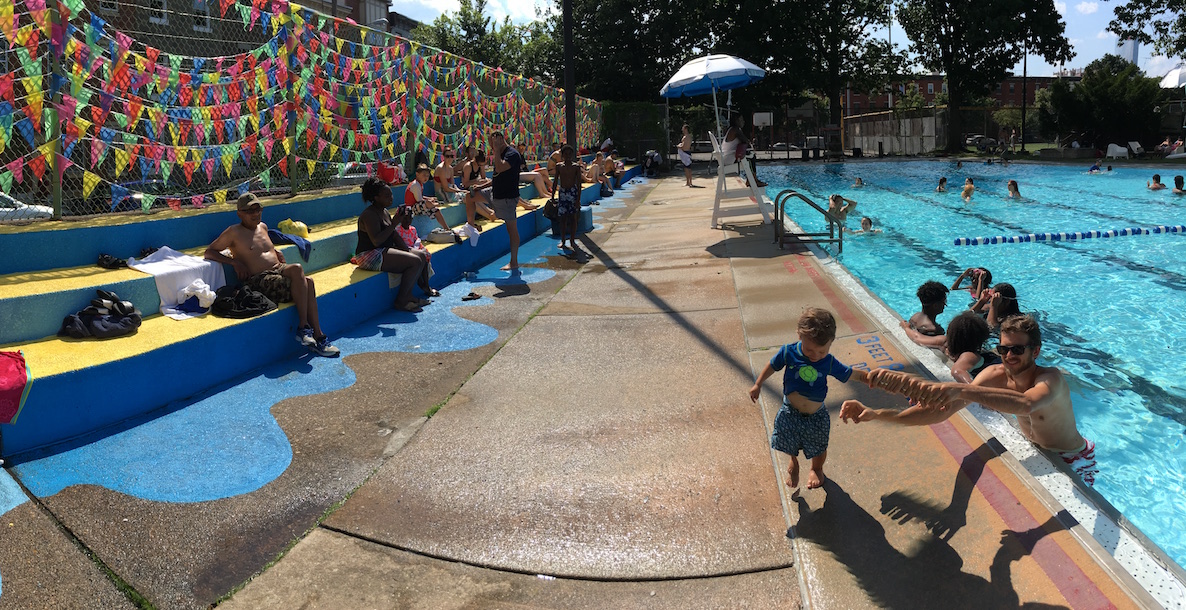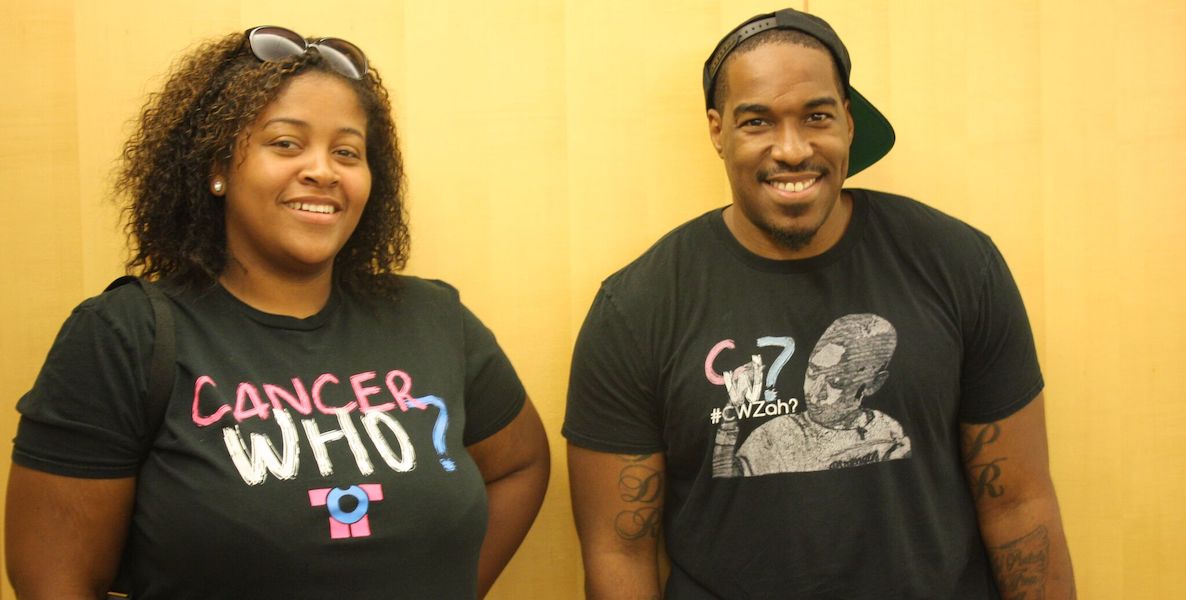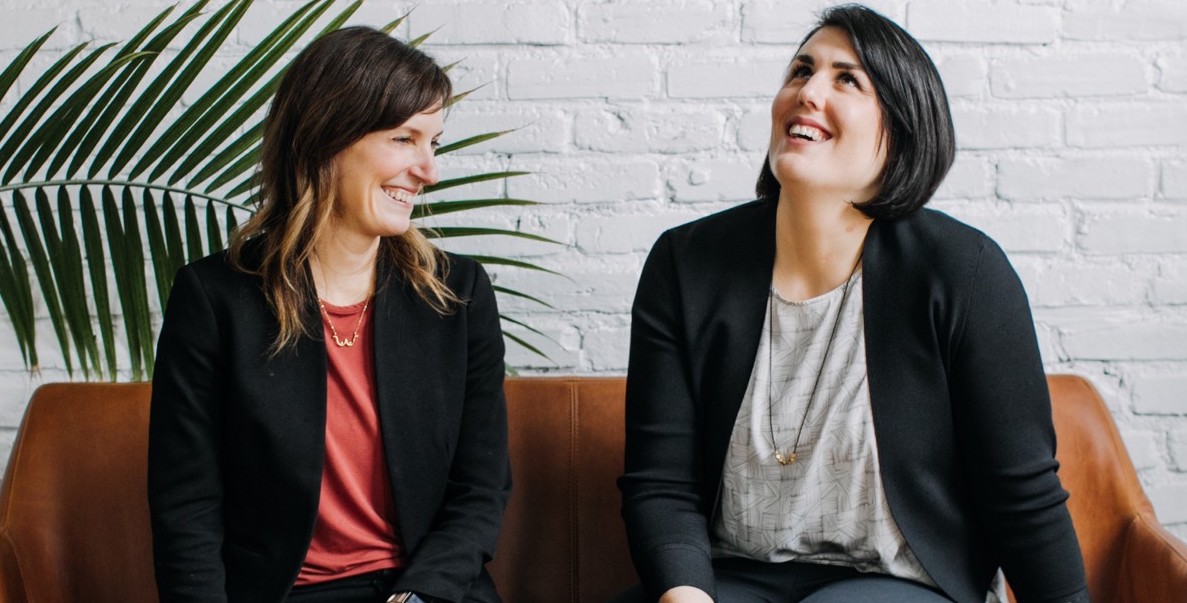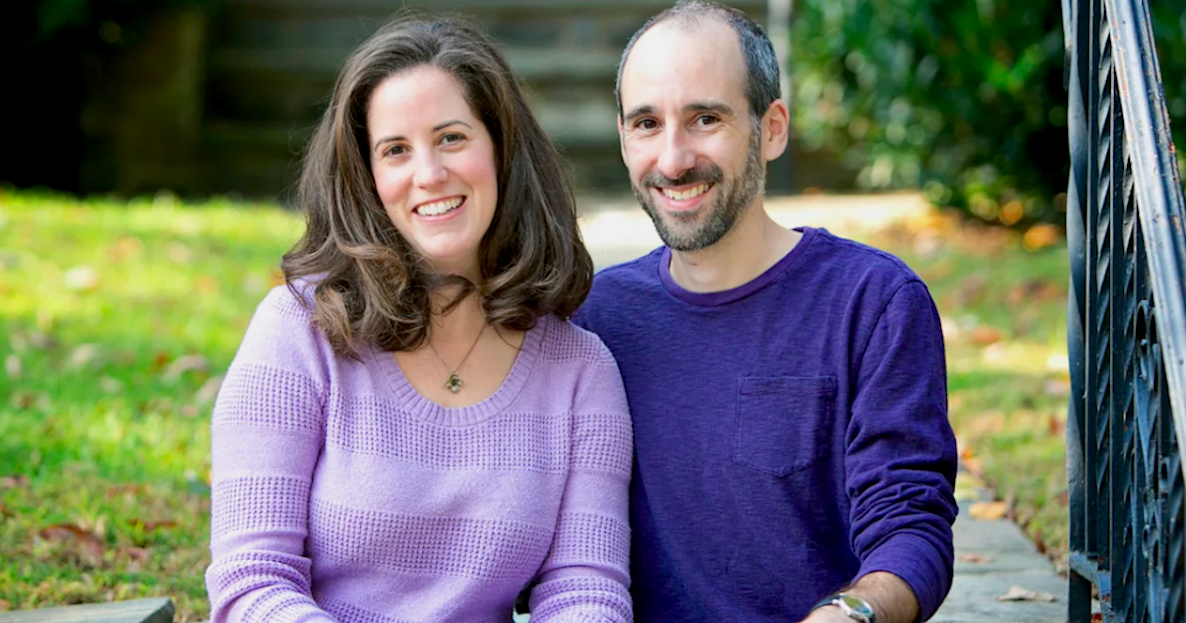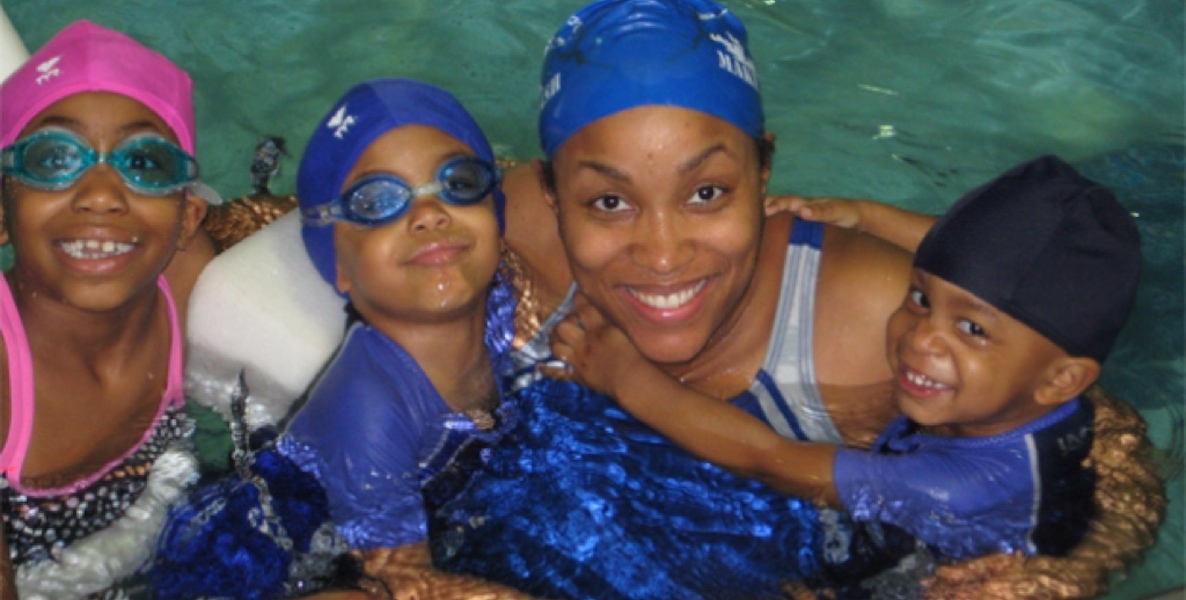When Angela Beale-Tawfeeq was 10 years old, she and her 11-year-old sister decided to try out for the Philadelphia Parks and Recreation Diving Team—without knowing how to dive.
![]() “My sister said ‘dive in and flap your arms like a bird, and you’ll come up,’” says Beale-Tawfeeq, who hadn’t had a single swim lesson. “So that’s what I did.”
“My sister said ‘dive in and flap your arms like a bird, and you’ll come up,’” says Beale-Tawfeeq, who hadn’t had a single swim lesson. “So that’s what I did.”
To their delight, the sisters, natives of North Philadelphia, made the team.
Beale-Tawfeeq went on to be coached by Jim Ellis, the subject of the movie Pride; earned an athletic scholarship to Howard University’s swimming and diving program; and earned a PhD in Physical Education Teacher Education. She’s now an associate professor and the chair of the Department of Science, Technology, Education, Arts and Mathematics at the College of Education at Rowan University, and a member of the American Red Cross’s Scientific Advisory Board.
But no matter how strong her skills became or how many accolades she accrued, that nerve-racking tryout experience—and her increasing awareness of the dire need to enable more kids to swim—made Beale-Tawfeeq, who currently lives in Glenside, determined to help inexperienced swimmers, particularly those in the city.
According to the Center for Disease Control and Prevention (CDC), unintentional drowning among children between the ages of 1 and 14 is the second leading cause of death behind car crashes. For African-American children between 5 and 14, the unintentional drowning rate is 5.5 times greater than the rate for white children. Researchers say that a major problem within minority communities is the lack of access to swimming pools and swimming-related programs.
“The whole idea of exposure and opportunity, and not being told they can’t lets kids know they can do anything they put their mind to.”
“The most important thing is to provide access,” Beale-Tawfeeq says. “The whole idea of exposure and opportunity, and not being told they can’t lets kids know they can do anything they put their mind to.”
Beale-Tawfeeq mixes her personal history with the American history of pools, often referencing Contested Waters: A Social History of Swimming Pools in America. The book, written by Jeff Wiltse, touches on how pools served as asylums for poor urban communities in the nineteenth century, whereas pools for the middle class were used for leisure.
Because a majority of Philadelphians, specifically the poor, in the mid-1800s didn’t have indoor plumbing and weren’t able to afford bath houses, they were often left with no other choice but to remain “dirty.” Wiltse says the social climate around swimming at this time reflected the tensions in American society.
“Pool use divided along class lines—but not ethnic or racial lines—because city officials, reformers and the middle-class public viewed the working classes en masse as ‘the great unwashed,'” Wiltse writes.
![]() In response, reformers opened public bathhouses with the intention to provide working-class men and women a way to bathe; working-class males, however, had other motives—they began using the public baths for summer recreation.
In response, reformers opened public bathhouses with the intention to provide working-class men and women a way to bathe; working-class males, however, had other motives—they began using the public baths for summer recreation.
Philadelphia, Wiltse notes, was the most prolific early builder of municipal pools. The city operated nine pools in the late 1890s, six of which were located in residential slums. Fast-forward to today, and the city oversees more than 70 indoor and outdoor pools, though attendance at city pools isn’t as high as it was in the 1900s: The Inquirer reported that in 1943, city pools admission reached 4.3 million—in 2013, Philadelphia recorded less than a million swims.
Dr. Beale-Tawfeeq has plans to change that. She’s devoted to increasing aquatic presence, awareness and economic strength in Philly. “As a Delta woman,” Beale-Tawfeeq says, referring proudly to her sorority—Delta Sigma Theta Sorority Incorporated—“when I see a problem, I find a solution.”
Beale-Tawfeeq developed her own program, A Stroke in the Right Direction, to teach water safety and social responsibility to children in minority populations. It’s a continuation of a collaborative water safety education program she taught while at Adelphi University.
“As an African-American female and physical education educator, I know the problems,” Beale-Tawfeeq says. “But I want to create hope, and solutions.”
In 2017, A Stroke in the Right Direction collaborated with Masjidullah, a mosque in Northwest Philadelphia, for a four-week summer camp. Beale-Tawfeeq taught 60 children between ages 5 and 13 the fundamentals of water safety. The camp has become an annual undertaking for Beale-Tawfeeq.
She’s also teamed up with Brannon L. Johnson’s (BLJ’s) Community Rowing, the only all-female, African American-owned boathouse in the country. Together, they plan to provide lessons to help black, female students become confident rowers, and help them qualify for college scholarships.
Beale-Tawfeeq has taught thousands of children water safety since she was 16 years old. And her next event, “Beyond the Lifeguard Chair: An Aquatics Symposium,” will take place on September 19 at the American Red Cross’s Philadelphia Chapter.
![]() Beale-Tawfeeq will be partnering and co-hosting with Cait Waxler of the American Red Cross; the goal of the event is to give attendees a chance to engage with a panel of experts about using aquatics as a means to “professional growth, health, and wellness,” and to get tools on becoming a water safety advocate.
Beale-Tawfeeq will be partnering and co-hosting with Cait Waxler of the American Red Cross; the goal of the event is to give attendees a chance to engage with a panel of experts about using aquatics as a means to “professional growth, health, and wellness,” and to get tools on becoming a water safety advocate.
As Beale-Tawfeeq continues to tread forward, she hopes to emphasize water safety training as a way to not only teach swimming, but activate healthy and economically impactful ways of life for black and brown children.
“As an African-American female and physical education educator, I know the problems,” Beale-Tawfeeq says. “But I want to create hope, and solutions.”
Photo courtesy Angela Beale-Tawfeeq


